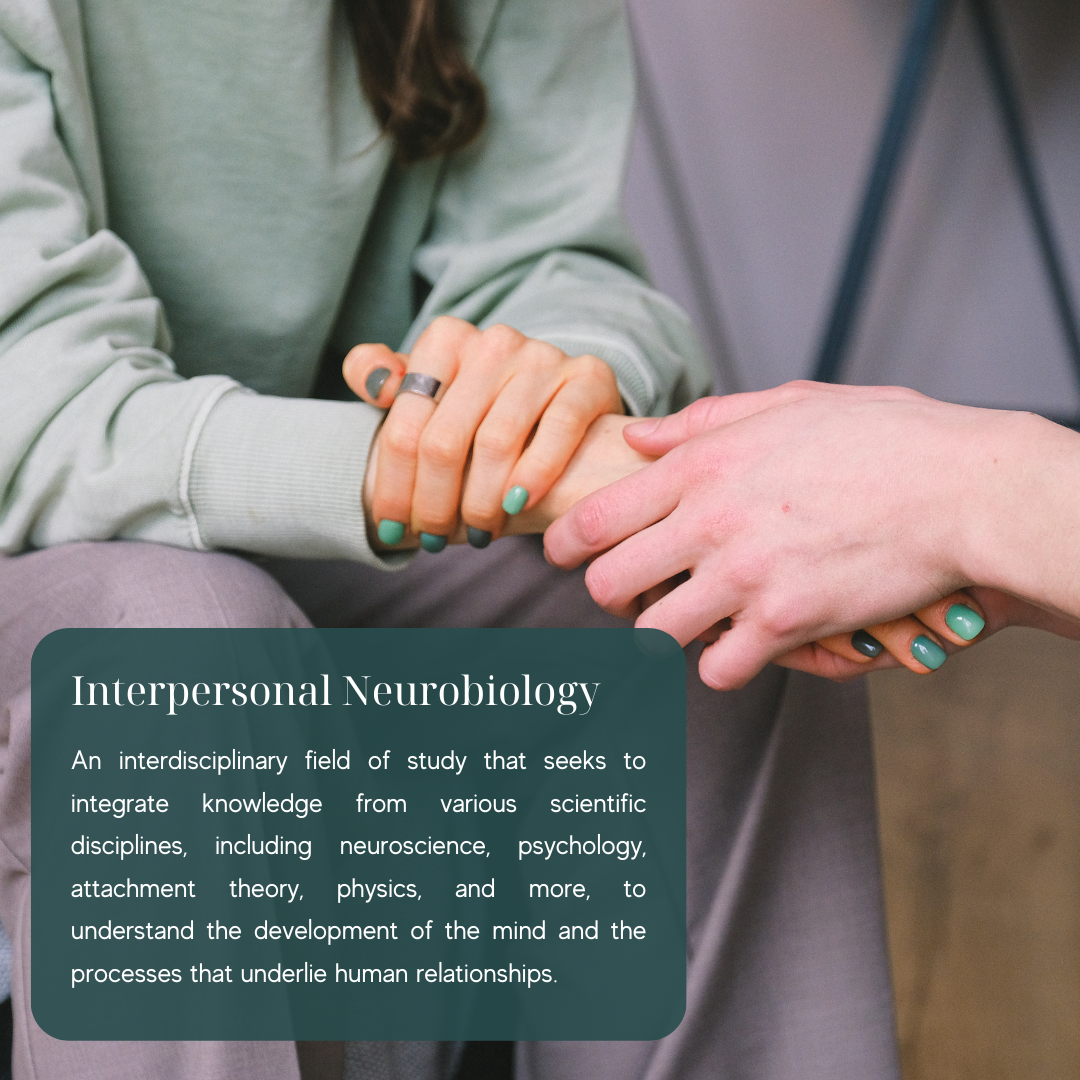Interpersonal Neurobiology: The Science of Connection and Human Experience
Interpersonal Neurobiology (IPNB) is an interdisciplinary field of study that seeks to integrate knowledge from various scientific disciplines, including neuroscience, psychology, attachment theory, physics, and more, to understand the development of the mind and the processes that underlie human relationships. It focuses on how the brain, mind, and relationships interact and shape each other throughout a person's lifespan. It was pioneered by Dr. Daniel J. Siegel, a psychiatrist and neuroscientist.
The Foundations of Interpersonal Neurobiology
At its core, Interpersonal Neurobiology examines the ways in which the brain and mind are shaped by interpersonal experiences. It explores the development and functioning of the brain, the mind, and relationships, emphasizing the integration of biological, psychological, and social aspects of human existence. This integration is fundamental to understanding how we think, feel, and interact with ourselves and others.
Brain Integration: A central concept in Interpersonal Neurobiology is "brain integration." It refers to the linking of different parts of the brain and the coordination of their functions. When the brain is integrated, various regions communicate effectively, allowing for flexible responses to both internal and external stimuli. This integration is crucial for emotional regulation, decision-making, and overall well-being.
Mindsight: "Mindsight" is another key idea in Interpersonal Neurobiology. It involves the ability to perceive one's own mind and the minds of others. Mindsight allows individuals to understand their own thoughts and emotions and empathize with the perspectives and experiences of others. Cultivating mindsight can lead to more fulfilling relationships and enhanced emotional intelligence.
The Interconnected Brain and Relationships: Interpersonal Neurobiology emphasizes the impact of relationships on brain development and function. Human brains are profoundly influenced by social interactions, especially in early life. These early experiences mold the brain's structure and function, shaping our abilities to connect with and understand others.
Attachment Theory: Attachment theory, a psychological framework that explores the dynamics of emotional bonds between individuals, aligns closely with Interpersonal Neurobiology. Early attachments and relationships significantly impact brain development, emotional regulation, and social behavior throughout life. Secure attachments contribute to healthy brain integration and the ability to form positive relationships in adulthood.
Interpersonal Neurobiology offers a holistic framework that intertwines very diverse fields, including knowledge from ancient wisdom, with modern scientific inquiry finding consilient findings to deepen our understanding of human experience and relationships. This interdisciplinary approach provides valuable insights for promoting mental health, fostering positive connections, and enhancing the overall quality of life. Integrating these principles into various aspects of life can lead to a more compassionate and interconnected society.
This is my main framework of work, if you’re interested in discussing more about this, click here to contact me.
I am a PhD in Clinical Sexology candidate at Modern Sex Therapy Institutes and have a Master of Science in Educational Psychology. I work with individuals, couples, non-monogamous relationships, and groups in topics related to sexuality, emotional regulation, communication dynamics, and changing behaviors.


